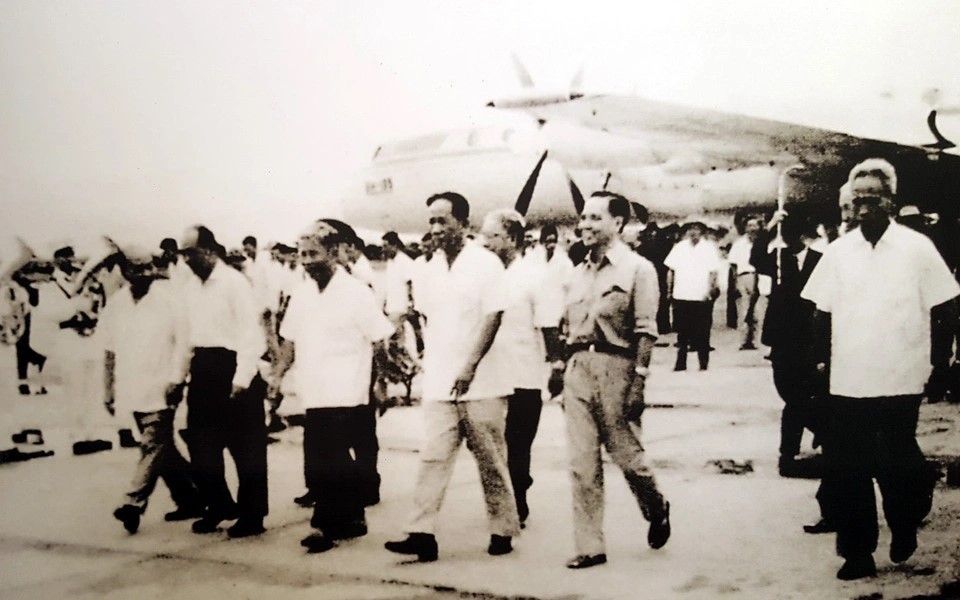 |
| Former General Secretary Le Duan and other Party leaders visited Saigon - Gia Dinh after the total victory. |
Vision of the times
The country was just born when it was plunged into the "3000 days without rest" war. The 9-year resistance war against France had exhausted the people; the economy , food, weapons... were exhausted. But at this moment, fate pushed us into a new war. The enemy was more powerful and more ambitious. In the world at this time, the idea of fearing America and admiring America was widespread in many countries. Especially looking at the relationship between us and America, many people were shaken.
At that time, General Secretary Le Duan affirmed that we would certainly win. Because he believed that: "Since World War II until now, no empire has lost as much as America" and "Currently in Vietnam, America is weak both politically and militarily" or "Here America is not strong militarily".
Why do you make such an assessment when the US military has the most diverse and numerous forces, the most modern weapons and combat skills? In the letter “To Brother Bay Cuong” (October 10, 1974), he pointed out: “Talking about strength and weakness is talking about certain comparative forces, in a certain time and space... But talking about strength and weakness is from a revolutionary perspective, a development perspective, based on a comprehensive assessment of both military and political; both position, strength and opportunity, both objective conditions and the art of leadership; is considering those factors in the process of movement; in a certain space and time. It is impossible to only use the number of troops, units, posts, weapons, equipment and means of war to compare and evaluate strength and weakness.”
Through the analysis and assessment according to the above method, he concluded: America's defeat was inevitable and a total defeat, not only politically but also militarily. He assessed that America would certainly lose because he also believed that: When America's war had reached its peak, that is, reached the limit that could not be overcome and still could not win, it would have to de-escalate and admit defeat. Commenting on this issue, the Marxist-Leninist Institute wrote: "A nation with a small country and a small population like Vietnam, facing the imperialist ringleader, and drawing that conclusion, of course, is not easy."
However, his assessment was not subjective or willful. Because he assessed the enemy very realistically and scientifically. He wrote: "If we had fought and defeated the French in nine years, it would take twice that time to defeat the Americans." With this prediction, as early as 1954, when he saw his comrades off to the North, he promised "we will meet again in 20 years." That is, he predicted that we would win this war, but it would take 20 years.
In the letter “To Mr. Muoi Cuc and the Central Office of the South” (July 1962), he analyzed: “The American imperialists must lose, but to what extent can they lose? We must win, but to what extent can we win? That is something that must be measured accurately.” And later he added: “We will defeat the Americans, but we cannot win in the same way we defeated the French, that is, by encircling and destroying them. As for the Americans, we can only win by dragging them down to the lowest rung. That is, forcing them to give up their ambition to enslave Vietnam and bring their flags back home.
| Reading "Letter to the South", we can feel the importance of confidential matters, the seriousness and strictness of military orders, but many letters are full of academic content about military strategy, scientific philosophy, politics and revolutionary views. |
Vietnamese intelligence and bravery
He clearly defined the path forward for the Southern revolution as "Not to proceed by long-term armed struggle, using the countryside to surround the cities, moving forward using military forces to liberate the entire country as China did, but to follow the path of Vietnam, that is, to have partial uprisings, establish bases, have guerrilla warfare, then move forward to a general uprising, mainly using political forces in coordination with armed forces to seize power for the people." (Letter "To Mr. Muoi Cuc and Southern comrades", February 7, 1961).
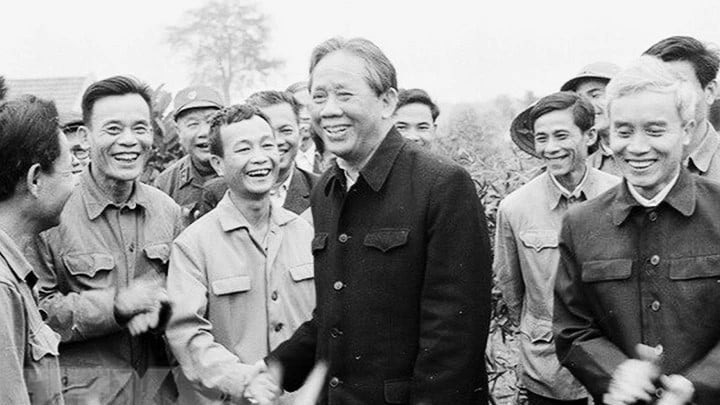 |
| General Secretary Le Duan talks with cadres and workers at Tay Hieu Farm, Nghe Tinh province in 1979. (Photo: VNA) |
Directly commanding the battles on the battlefield. And through each battle, he could analyze and judge, accurately grasping the situation on the battlefield. He summarized the process of America's failure in the "special war" in a short sentence: "Since the battle of Ap Bac, America saw that it could not defeat us, and by the battle of Binh Gia, America saw that it would lose to us in the "special war". (Letter to Mr. Xuan, February 1965). By the battle of "Van Tuong", he concluded that we could defeat America in a local war. In 1968, he commented that "America is in a strategic dilemma" and "America's war efforts in Vietnam have now reached their peak". When they tried their best but still could not defeat us, it meant that America would fail.
When winning many victories on the fronts, the turning point was forcing the enemy to sign the Paris Agreement, he analyzed and pointed out: “For us, the important thing of the Paris Agreement is not to recognize two governments, two armies, two controlled areas, moving towards establishing a three-component government, but the key is that the American troops must leave while our troops stay, the North-South corridor is still connected, the rear is connected to the front to form a unified continuous strip; our offensive position is still stable. Our intention is to maintain our position and strength in the South to continue to advance and attack the enemy...” (Letter "To Brother Bay Cuong", October 10, 1974)
In 1962, in a letter to the then Secretary of the Regional Party Committee, Comrade Muoi Cuc, he wrote: “We only remind ourselves to always firmly grasp the motto of fighting harder and harder, if we are not sure of victory, then we will not fight.” His viewpoint at that time was to take certainty as the most important. But 10 years later, the situation on the battlefield and in the world had changed. Realizing that the opportunity to liberate the South had come, he made up his mind in the Politburo meeting and also in the letter “To Brother Bay Cuong” dated October 10, 1974: “At this time, we have an opportunity. Twenty years of fighting have created this opportunity, we must seize it to bring the cause of national liberation to complete victory.”
He further analyzed and predicted: When the US fails and has to withdraw, it will be difficult to return, and other invading forces that want to "fill the gap" have not had the opportunity. Therefore, "there is no other opportunity besides this", "if we delay for another ten or fifteen years, the situation will be extremely complicated". The plan to liberate the South in two or three years, outlined in 1974, was extremely meticulous, determined but also extremely flexible, with a high degree of openness to take advantage of the situation in other aspects outside the battlefield, the enemy's internal affairs, the diplomatic front, the world situation... And so when there was an opportunity, this plan was continuously shortened to one year, six months, then two months. It seemed subjective and adventurous, but in fact, he and the Politburo saw new phenomena, new possibilities appearing on the battlefield, saw "warning battles" of those possibilities such as Phuoc Long, Buon Ma Thuot...
And in January 1975, more than 2 months after the Politburo meeting, he declared: "Advance to the strategic decisive battle at the enemy's last lair by the fastest way" and "We must grasp the strategic opportunity, determined to carry out a general offensive and uprising, and end the liberation war victoriously in the shortest time. It is best to start and end in April this year, without delay. We must act "quickly, boldly, and unexpectedly". We must "attack right when the enemy is confused and weak". (Letter "To Brother Bay Cuong, Brother Sau, Brother Tuan" 2:00 p.m., April 1, 1975).
He also put forward a theory on ending the war, defeating the enemy by surprise and the art of solving this problem. “We must not only be determined to fight and defeat the Americans, but also know how to fight and win. If we know how to start right and fight for a long time, we must know how to end right.”
Simple but revolutionary
30 years ago, the letters of General Secretary Le Duan directing the Southern battlefield were published. Because these letters, previously top secret documents, were decisive in the fate of the war and more broadly, in the fate of the nation at that time. They were top secret documents, discussing the highest issues but without mentioning the name or position, but only writing "to you" or "to you". At the bottom of the letter, he always signed only one letter BA, which is his code name: Ba Duan... In the beginning of the letter, he often went straight to the point in a very simple way such as "The situation is changing rapidly" or "The Politburo met on..." or "This morning I just received...". With letters to local leaders, he often encouraged with intimate lines at the beginning of the letter such as "Dear brothers!" or at the end of the letter he wrote "Best regards and victory".
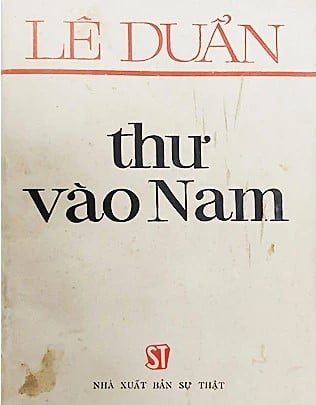 |
| Cover of the collection "Letters to the South". |
Reading “Letter to the South”, we can feel the importance of confidential matters, the seriousness and firmness of military orders, but many letters are full of academic content about military strategy, scientific philosophy, politics and revolutionary views. In “Letter to the South”, although the author’s tone is basically calm, frank, direct, clear, concise... it has the style of instructions, orders and military political science. However, readers can still feel his emotions through the revolutionary situations and the battlefield situation.
This was most clearly demonstrated in the directive letters to the Southern battlefield in late 1974 and early 1975. The letters were full of enthusiasm and the readers felt as if they were standing before an army of shining swords and guns, with countless cheers and the resounding call of the leader. He wrote: “6 p.m. on March 27, 1975.... The glorious victory in Buon Ma Thuot and the Central Highlands created an opportunity to liberate Da Nang. We must concentrate forces from two sides, from Thua Thien - Hue to attack in and from Nam - Ngai to attack out, quickly destroy all enemy forces in Da Nang, not allowing them to retreat to regroup and defend Saigon. At this time, time is force. We must act extremely boldly and unexpectedly, making the enemy unable to react... We must have special measures to march as quickly as possible, promptly control and occupy airports and ports, surround and divide to destroy the enemy...” (Letter “To Mr. Nam Cong and Mr. Hai Manh”).
In the letter “To Mr. Bay Cuong, Mr. Sau, Mr. Tuan” there is a passage: “Our country’s revolution is developing at the pace of “one day equals twenty years”. Therefore, the Politburo decided: we must firmly grasp the strategic opportunity, determined to carry out a general offensive and uprising, and successfully end the war of liberation in the shortest time. It is best to start and end in April this year, without delay, the action must be “lightning-fast, bold, and unexpected”. We must attack right when the enemy is confused and weak...”.
There were letters that were not even 100 words long, expressing the urgency and military orders, he wrote "The situation is changing rapidly, we need to take advantage of the time to act urgently. Therefore, Mr. Tuan should go in early to meet Mr. Bay Cuong at the Central Office to immediately discuss the plan to capture Saigon. Mr. Sau will go in there for a meeting. Mr. Bay Cuong and Mr. Tu Nguyen will not go to the Central Highlands anymore" (Letter "To Mr. Bay Cuong, Mr. Sau, Mr. Tuan", 11:00 a.m. on March 31, 1975).
As the liberation day approached, news of victory poured in, and the General Secretary could not hide his joy and encouragement for the generals and leaders of the South. He often wrote at the end of his letters: "I send you my greetings for victory", "Wishing you good health" or "Seizing the great opportunity, we will definitely win total victory!" And it was rare in his letters that he wrote as if he was smiling at his generals: "The Politburo praises the resounding victories of the army and people of Zone 5 and awaits news of the great victory of the Da Nang front." (Letter "To Mr. Nam Cong and Mr. Hai Manh", March 27, 1975). Or in the letter "To Mr. Bay Cuong" at 4 p.m. on March 29, 1975, he expressed his feelings like an older brother writing to a younger brother: "Wishing you good health and great victory".
And his last letter to be sent for this war was on the historic day of April 30. It was a letter of commendation from the General Secretary, on behalf of the Politburo, to all cadres, soldiers, party members, union members and people of Saigon - Gia Dinh who participated in the Ho Chi Minh campaign.
Source: https://thoidai.com.vn/nhung-la-thu-cho-van-menh-non-song-213023.html



![[Photo] Ca Mau "struggling" to cope with the highest tide of the year, forecast to exceed alert level 3](https://vphoto.vietnam.vn/thumb/1200x675/vietnam/resource/IMAGE/2025/11/04/1762235371445_ndo_br_trieu-cuong-2-6486-jpg.webp)
![[Photo] The road connecting Dong Nai with Ho Chi Minh City is still unfinished after 5 years of construction.](https://vphoto.vietnam.vn/thumb/1200x675/vietnam/resource/IMAGE/2025/11/04/1762241675985_ndo_br_dji-20251104104418-0635-d-resize-1295-jpg.webp)

![[Photo] Panorama of the Patriotic Emulation Congress of Nhan Dan Newspaper for the period 2025-2030](https://vphoto.vietnam.vn/thumb/1200x675/vietnam/resource/IMAGE/2025/11/04/1762252775462_ndo_br_dhthiduayeuncbaond-6125-jpg.webp)
![[Photo] Ho Chi Minh City Youth Take Action for a Cleaner Environment](https://vphoto.vietnam.vn/thumb/1200x675/vietnam/resource/IMAGE/2025/11/04/1762233574890_550816358-1108586934787014-6430522970717297480-n-1-jpg.webp)



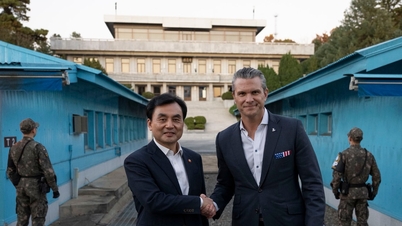
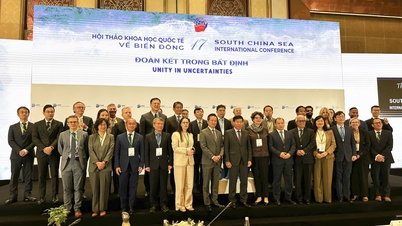
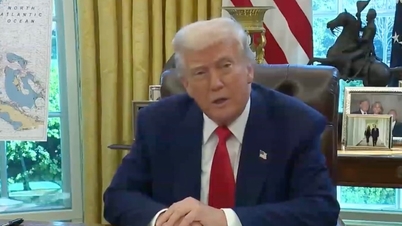
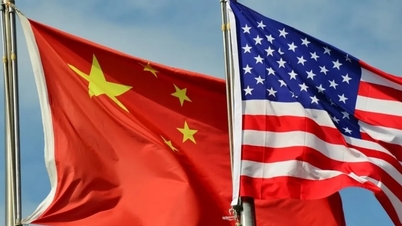




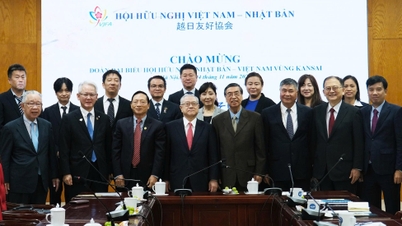


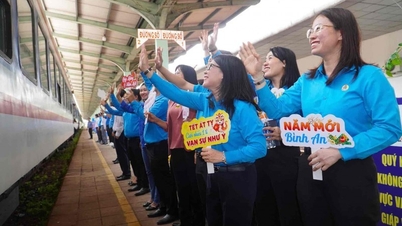

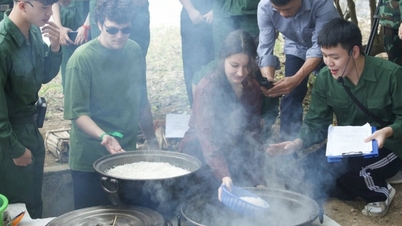
























































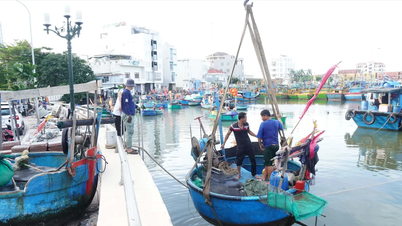

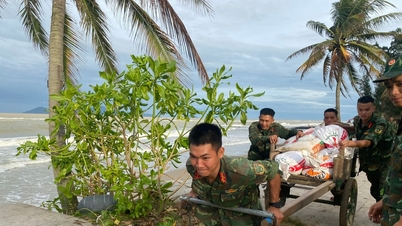
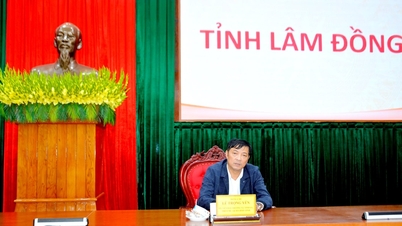

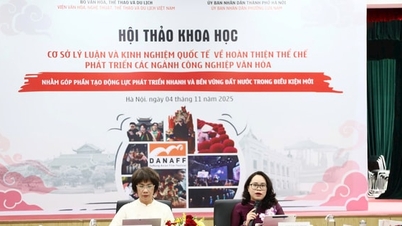















Comment (0)